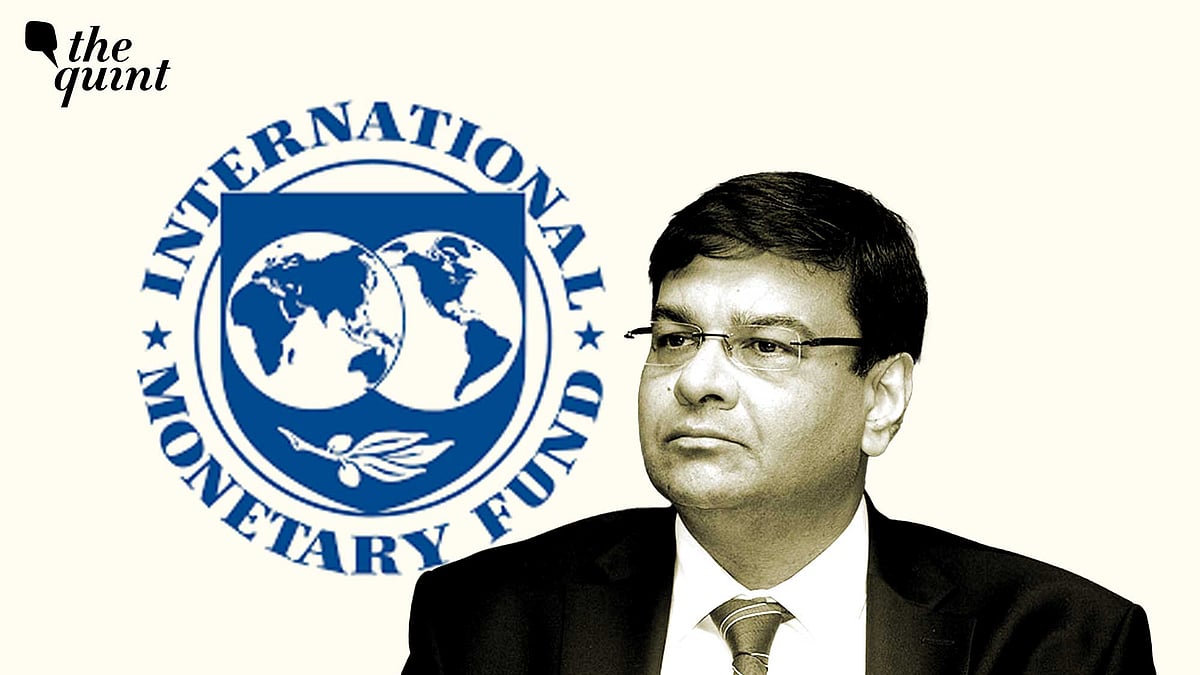
Can Urjit Patel Rebuild India’s Reputation at the IMF after Past Missteps?
The IMF posting will be a good redemption for both, Urjit Patel and India, writes Subhash Chandra Garg.

advertisement
Urjit Patel resigned from the Reserve Bank of India (RBI) governorship in December 2018 in circumstances that led many people to believe that he was fired by the Narendra Modi government. Some thought he resigned in disgust against the government’s trampling on the RBI’s independence.
He has now been nominated by the same government as India’s Executive Director (ED) at the International Monetary Fund (IMF). He would soon be joining the IMF resident board in Washington DC on a role from which the last ED, K Subramanian, was dismissed by the Modi Government a few months back.
Why did Urjit Patel resign from RBI?
Does the IMF positioning mark his full reconciliation and rehabilitation?
Will it help restore India’s credibility at the IMF?
Urjit Patel Felt Pressured
Urjit Patel resigned in the most unusual manner.
On 10 December 2018, with still a significant portion of his tenure remaining, he wrote a resignation letter, posted it on the RBI website, and simply walked out. The Finance Minister was not informed. No formal resignation reached the government. This created an emergency, forcing the government to find his successor within 24 hours. I have described the entire episode in detail in my book 'We Also Make Policy.'
He issued directions to the banks to initiate insolvency proceedings against loan defaulters, without bothering to hold even a semblance of a consultation with the government.
He also implemented the Economic Capital Framework (ECF) to retain a significant portion of the RBI’s annual surplus, depriving the government of its legitimate revenues.
He made public assertions of his independence by presenting him as the quintessential Hindu deity Shiva, willing to drink poison for saving the nation, and getting his deputy Viral Acharya to denounce the government’s alleged interference with the RBI’s independence, accusing it of attempting to raid the RBI’s reserves.
In October–November 2018, he agreed to the constitution of the Bimal Jalan Committee to examine the RBI surplus issue afresh. Stiffness in inter-personal relationships also reduced.
I thought the crisis had blown over and he would stay on. However, Patel had other ideas.
Early in December, he met the Prime Minister. He was quite tense and asked for his permission to resign. The Prime Minister reluctantly agreed. Patel resigned quite dejected, vowing possibly to never to work with the government again.
Diminution Brings Him Back
After sulking for a few months, Patel did odd jobs, including writing a book, Overdraft, on his tenure in the RBI. He acted as a part-time chairperson of the National Institute of Public Finance and Policy (NIPFP) and on the boards of one or two companies. Certainly, none of this was a match to the responsibility and authority he wielded as the RBI governor.
In January 2022, the Modi government, exercising India’s right as the second largest shareholder of the Asian Infrastructure Investment (AIIB) to nominate one of its five vice-presidents, nominated Patel. He worked in the AIIB as a Vice-President of this China-controlled multilateral bank based in Beijing, reporting to Jin Liqun, the President and a former vice-minister in the finance ministry in China.
Patel possibly did not find working in AIIB quite satisfying and fulfuling. He resigned from the position in January 2024, much before conclusion of his normal tenure, even when he did not have anything better to work for.
Patel began his professional career in the IMF as an Economist in 1990. He joins the IMF’s highest policy making body, the Executive Board, in 2025. His appointment to this position by the Modi government does signify that he has re-earned the confidence of Prime Minister Modi.
He Has a Job to Do
The IMF’s role is most eminently suited for economist-administrators. It works with countries in their economic crises—fiscal, monetary, and external. The IMF’s responsibility also includes maintaining global financial order and stability.
Considering this specialised nature of the IMF job, India has been nominating economists with extensive economic policy and central banking experience.
During the last decade, Rakesh Mohan, Subir Gokarn, Surjit Bhalla, and K Subramanian occupied this position. Rakesh Mohan and Subir Gokarn had served as Deputy Governors of RBI before being entrusted as Executive Directors at the IMF. Bhalla had extensive academic and research experience. Subramanian had worked as Chief Economic Adviser.
Rakesh Mohan, Subir Gokarn, and Surjit Bhalla gave a good account of themselves while in IMF. They contributed notably to the mission of IMF maintaining India’s good profile and say. Their contributions were widely appreciated.
Urjit Patel steps into these muddied waters.
His appointment brings an ex-RBI Governor as India’s ED in IMF after at least 35 years. He is a brilliant user of data and has the ability to present his arguments and case with perfect clarity and professionalism. He has the right experience in the IMF domain area as well.
I am quite sure that he would step into this role like a fish takes to water. He will certainly repair India’s record and profile at IMF, sullied by Subramanian. He would make much better contribution to the global financial and crises management.
The IMF posting should be a good redemption for both, Urjit Patel and India.
(Subhash Chandra Garg is the Chief Policy Advisor, SUBHANJALI, and Former Finance and Economic Affairs Secretary, Government of India. He's the author of many books, including 'The $10 Trillion Dream Dented, 'We Also Make Policy', and 'Explanation and Commentary on Budget 2025-26'. This is an opinion piece, and the views expressed above are the author’s own. The Quint neither endorses nor is responsible for the same.)
- Access to all paywalled content on site
- Ad-free experience across The Quint
- Early previews of our Special Projects
Published: undefined